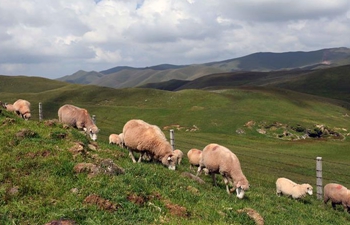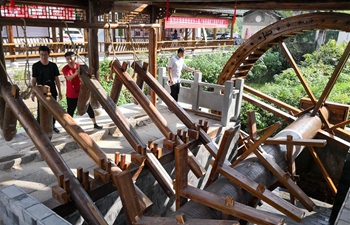SYDNEY, Aug. 28 (Xinhua) -- Scientists from Australia's University of Sydney (UoS) were part of a major breakthrough released on Tuesday targeting rust disease, a fungal infection which frequently devastates wheat crops worldwide.
By cloning three resistant genes to stripe or yellow rust, the team have provided the opportunity for them to be accurately monitored, and incorporated into breeding programs to develop resistant varieties of wheat.
"We've cloned the first major resistant genes against this fungal pathogen," study co-author Dr. Peng Zhang from UoS told Xinhua.
Rust disease affects crops not just in Australia but across China, North America and the rest of the world as well.
"Everywhere they grow wheat this has been a problem because the pathogen is very adaptive and very aggressive," Zhang said.
"On top of that there are not many effective genes available that breeders can use in their varieties."
In past years, where rust disease has taken hold, farmers have experienced crop losses of about 70 percent or even more.
Lead authors of the research were PhD students Jianping Zhang from UoS and Clemence Marchal from the John Innes Centre in Britain who teamed up under the supervision of world leading wheat rust researchers Dr. Evans Lagudah, Dr. Cristobal Uauy, Prof. Robert Park and Dr. Peng Zhang.
The current breakthrough will hopefully offer farmers an alternative solution to fungicides which are used heavily in helping to stop the spread of rust diseases, whilst unfortunately having negative effects on the surrounding environment.
"Also in recent years fungal pathogens have developed fungicide insensitivity," Zhang said.
"Which means you can spray as much as you want and you still won't kill the fungi, similar to the superbugs which are resistant to antibiotics."
Zhang described the research as a major contribution, and hopes that it will go towards increasing food security around the world.













